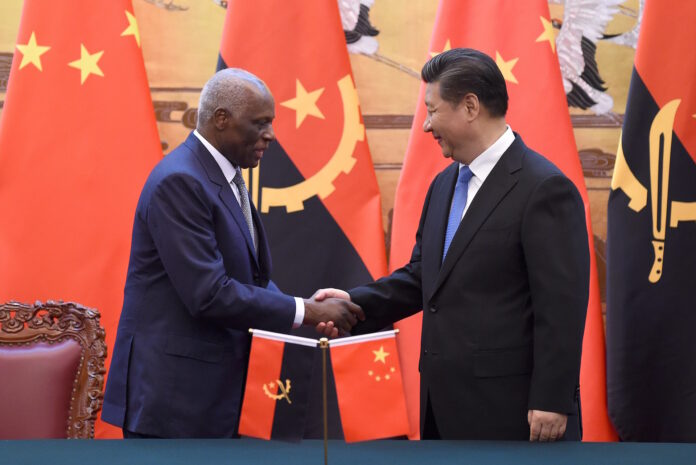Angola has announced that China disbursed $2 billion for infrastructures development to the country.
The government had yet to disclose the terms, such as the interest rates and the repayment period.
The deal, inked last week in Beijing following President João Lourenço’s visit, is financed by the Chinese Development Bank (CDB).
Angola’s major infrastructure development projects include a high voltage electricity link to Huambo, Huila and Namibe provinces and a railway from Benguela Province to neighbouring Zambia.
China is Angola’s second largest trading partner in Africa, after South Africa, and the Asian giant’s role in the southern Africa state since 2004 has been visible, mostly in the reconstruction sector.
The Chinese were also reportedly keen to play a key role in the diversification of the Angolan economy, currently largely dependent on oil.
China started offering credit lines to Angola in 2002, and Luanda’s debt to Beijing currently stands at about $23 billion, with about 60 per cent of it supported by oil.
Angola is Africa’s second leading oil exporter, but its nationals remain impoverished, seeing little benefit from the oil revenues.
According to the United Nations, the oil sector represents 97 per cent of Angola’s exportation and 80 per cent of public revenues, and employs one per cent of the population.
Angola has a population of 26 million spread across 18 provinces and got independence from Portugal in 1975.
The government had yet to disclose the terms, such as the interest rates and the repayment period.
The deal, inked last week in Beijing following President João Lourenço’s visit, is financed by the Chinese Development Bank (CDB).
Angola’s major infrastructure development projects include a high voltage electricity link to Huambo, Huila and Namibe provinces and a railway from Benguela Province to neighbouring Zambia.
China is Angola’s second largest trading partner in Africa, after South Africa, and the Asian giant’s role in the southern Africa state since 2004 has been visible, mostly in the reconstruction sector.
The Chinese were also reportedly keen to play a key role in the diversification of the Angolan economy, currently largely dependent on oil.
China started offering credit lines to Angola in 2002, and Luanda’s debt to Beijing currently stands at about $23 billion, with about 60 per cent of it supported by oil.
Angola is Africa’s second leading oil exporter, but its nationals remain impoverished, seeing little benefit from the oil revenues.
According to the United Nations, the oil sector represents 97 per cent of Angola’s exportation and 80 per cent of public revenues, and employs one per cent of the population.
Angola has a population of 26 million spread across 18 provinces and got independence from Portugal in 1975.




